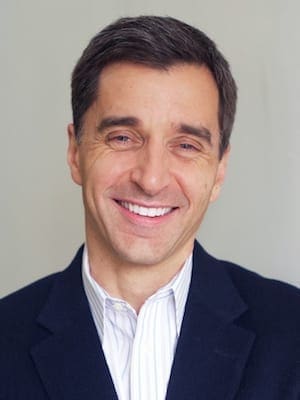I may have pushed too hard in my sermon last Sunday.
For three weeks after white nationalists rallied in Charlottesville, Virginia, I mentioned racism in my sermons and how we need to root it out of our hearts and out of our nation.
I received an email from one television viewer who said I had crossed a line, that I had started “preaching politics” from the pulpit.
I didn’t write back immediately, but when I did I said this:
“I don’t think I was preaching politics. I believe it is God’s dream that all his children – red and yellow, black and white – live in harmony. I believe Martin Luther King Jr. shared that dream. I believe that people who dream of an all-white United States in which black people are either enslaved or excluded have a different dream, and I firmly believe that dream should die.
“But I did not preach about Republicans or Democrats, I did not speak a critical word about our president or Congress, I did not suggest political solutions to societal problems. I called on the people of God to behave like it and to love their neighbors. I will always do that.”
Last weekend I did it again, even though I had told the worship planning team that I thought our congregation had heard all they could hold for a while. But I couldn’t help myself.
The statistics I heard at a conference on Monday, Sept. 11, had broken my heart, and my heart had been soaking in those statistics all week:
- White households control 90 percent of the wealth in America while black households control only 2.6 percent.
- The top 10 percent of white homes are worth $1.4 million or more while the bottom 50 percent of black homes (once the family car is deducted) are worth less than $1,700.
- A black college graduate can expect to make only two-thirds the income of a white high school dropout.
I was talking about forgiveness and about sins that seemed too big to forgive. My hope was that my congregation would hear those statistics and come to me afterward saying, “Gosh! That’s awful! What can we do to change that?” because I think there are things that can be done. I think Christian churches in America – both white and black – should be working toward solutions.
I was preaching to people who have shown themselves to be remarkably compassionate, people who have been willing to step forward and engage the problems of our society in order to make a difference, in order, as we say, “to bring the Kingdom of Heaven to Richmond, Virginia.” But I may have pushed too far.
I may have bumped into the compassion fatigue that people get when they have cared as much as they can for as long as they can, or I may have said what I said in a way that made people feel guilty rather than empathetic.
That’s what I heard afterward: “I’m not a racist!” (No, didn’t say that you were); “Where did you get those statistics?” (from Antonio Moore, an African-American lawyer from Los Angeles); “I have a lot of black friends!” (Exactly!).
I do, too. And it’s exactly because we have a lot of black friends that we can be moved with compassion for black Americans everywhere and want them to have what we (white Americans) have.
That’s how Yvette Carnell explained it. When I spoke to her after last week’s conference, I said, “I want black Americans to have decent housing and good schools and adequate health care and equal opportunity…” I wasn’t finished yet but I saw her smiling.
“What?” I asked.
“You want them to have what you have,” she said.
Exactly.
Jim Somerville is pastor of First Baptist Church in Richmond, Virginia. A version of this column first appeared on his blog and is used with permission. You can follow him on Twitter @SomervilleJim.
Jim Somerville is pastor of First Baptist Church in Richmond, Virginia.

